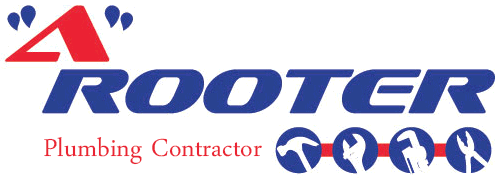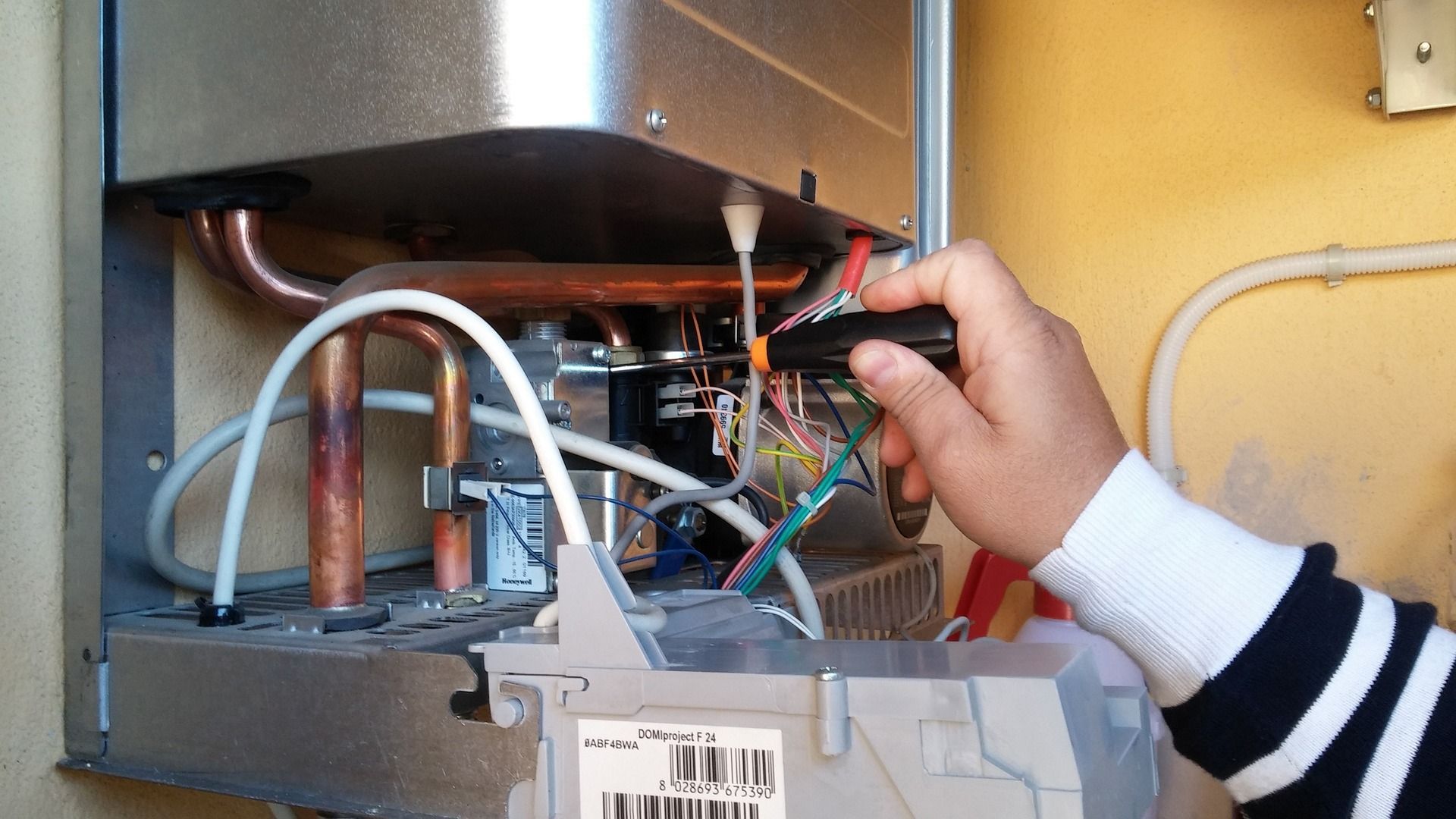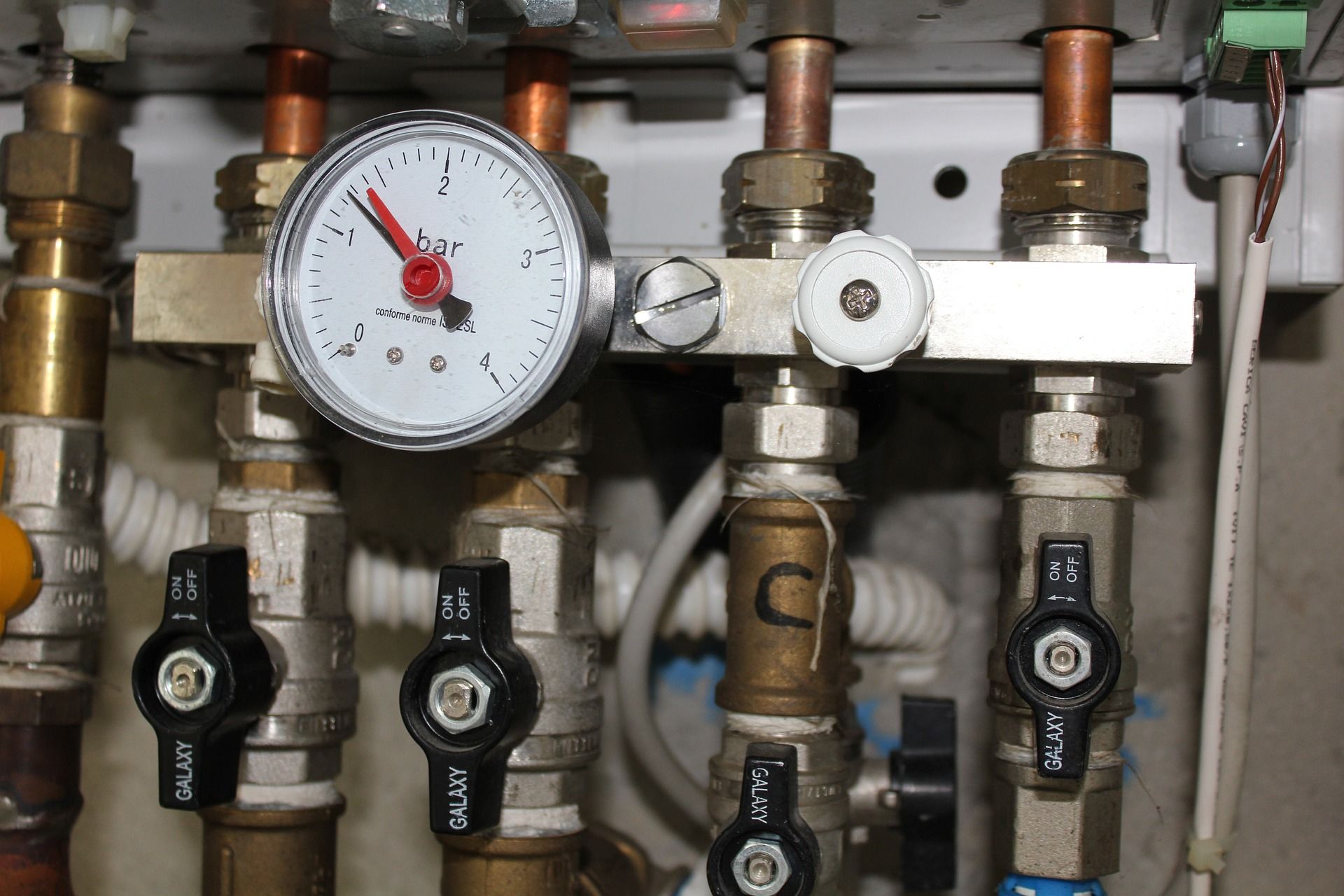Get in touch
Guide to Buying a New Hot Water Heater
A hot water heater is an essential component of any household, providing warm water for bathing, cleaning, and various other day-to-day activities.
Are you tired of taking cold showers and waiting forever for your hot water to come on?
Well, my friend, it's time to dive into the world of hot water heaters and find the perfect one for you.
However, with numerous types, sizes, and features available in the market, choosing the right hot water heater can be a daunting task. In this guide, we will walk you through everything you need to know to make an informed decision when buying a new hot water heater.
So, let's get started and find the hot water heater that will revolutionize your daily routine.
Types of Hot Water Heaters
When buying a new hot water heater, you need to consider the different types available. For an audience that desires innovation, it's important to explore the options.
a) Storage Tank Water Heaters: These traditional water heaters store and continuously heat a specific amount of water in a tank. They provide a steady supply of hot water but may require energy to maintain the temperature even when not in use.
b) Tankless Water Heaters: These compact, energy-efficient units heat water on demand, providing hot water whenever needed. They occupy less space but may have limitations on simultaneous usage.
c) Heat Pump Water Heaters: Utilizing heat from the air or the ground, heat pump water heaters are highly energy-efficient. Although they have higher upfront costs, they can help save on energy bills in the long run.
Fuel sources
Consider the available fuel options for your hot water heater. Common options include:
a) Electric: Suitable for areas with a reliable electrical supply.
b) Natural Gas or Propane: These options provide cost-effective heating but may require a flue or venting system.
c) Solar: Environmentally friendly and cost-effective in the long term, solar-powered hot water heaters depend on sunlight availability.
Key Features to Consider
To ensure you make the right choice, consider the key features of the hot water heater that will best meet your needs. When purchasing a new hot water heater, there are two important factors to consider: warranty options and cost comparison. These features are essential for those seeking innovative solutions for their home.
Warranty Options
When investing in a hot water heater, it's crucial to consider the warranty options available. A good warranty provides peace of mind and protects you from unexpected repair costs. Look for a warranty that offers comprehensive coverage for a reasonable period of time. Some manufacturers offer extended warranties, which can be a great option if you want extra protection.
Cost Comparison
Another key feature to consider is the cost comparison. While it's important to find a hot water heater that fits within your budget, it's equally important to consider the long-term costs. Energy-efficient models may have a higher upfront cost, but they can save you money on your monthly utility bills. Additionally, some models may require less maintenance and have a longer lifespan, which can also result in cost savings over time.
To help you make an informed decision, here is a table comparing different hot water heater models based on their warranty options and cost:
| Hot Water Heater Model | Warranty Options | Cost Comparison |
|---|---|---|
| Model A | 5 years | High upfront cost, but energy-efficient and low maintenance |
| Model B | 3 years | Affordable upfront cost, but slightly higher monthly energy bills |
| Model C | 10 years | Highest upfront cost, but most energy-efficient |
| Hot Water Heater Model | Warranty Options | Cost Comparison and longest lifespan |
Sizing and Capacity
Consider the appropriate sizing and capacity of the hot water heater to ensure it meets your household's specific needs. When selecting the right size, it's crucial to calculate your requirements accurately. Gone are the days when you'd to settle for a one-size-fits-all approach. In today's innovative market, hot water heaters are available in various sizes and capacities to cater to different households.
To calculate your requirements, start by determining the peak demand of hot water in your home. Consider the number of occupants and their hot water usage habits. Take into account activities such as showers, dishwashing, and laundry. By estimating the total gallons of hot water used during the busiest hour of the day, you can identify the appropriate capacity for your hot water heater.
Remember, selecting the right size is essential for energy efficiency and cost savings. An undersized unit may struggle to meet your hot water demands, leading to inadequate water temperature and frequent running out of hot water. On the other hand, an oversized unit may result in excessive energy consumption, unnecessary expenses, and inefficient heating.
Fortunately, modern hot water heaters offer innovative features to optimize size and capacity. Tankless water heaters, for example, provide on-demand hot water without the need for a storage tank. These compact units are space-saving and energy-efficient, ensuring a constant supply of hot water while reducing standby heat loss.
Energy Efficiency Ratings
Now let's explore how energy efficiency ratings play a crucial role in selecting a new hot water heater for your household. When it comes to hot water heaters, energy efficiency is key for both cost-effective options and reducing your environmental impact.
Investing in an energy-efficient hot water heater can save you money in the long run. By choosing a model with a higher energy efficiency rating, you can significantly reduce your monthly energy bills. These cost-effective options not only help you save money but also contribute to a more sustainable future.
When considering the environmental impact, it's important to look for hot water heaters with high energy efficiency ratings. Traditional water heaters can account for a significant portion of a household's energy consumption, contributing to greenhouse gas emissions and environmental pollution. By opting for an energy-efficient model, you can minimize your carbon footprint and reduce your overall environmental impact.
To make an informed decision, look for hot water heaters that are ENERGY STAR certified. ENERGY STAR is a widely recognized symbol of energy efficiency and environmental stewardship. Products with this certification meet strict efficiency guidelines set by the Environmental Protection Agency. By choosing an ENERGY STAR certified hot water heater, you can be confident that you're selecting a product that's both energy-efficient and environmentally friendly.
Installation and Maintenance Tips
When it comes to installing and maintaining your new hot water heater, it is important to follow these tips for optimal performance and longevity. Proper installation techniques and regular maintenance are crucial for ensuring that your hot water heater operates efficiently and effectively. Here are some key tips to keep in mind:
- Proper Installation Techniques: To ensure a successful installation, it is recommended to hire a professional plumber or technician who is experienced in handling hot water heaters. They will have the necessary knowledge and skills to properly install the unit, ensuring that it is connected to the water and gas lines correctly. Moreover, they will ensure that the unit is properly vented to prevent the accumulation of harmful gases like carbon monoxide.
- Regular Maintenance: Regular maintenance is essential to prolong the lifespan of your hot water heater and prevent potential issues. Here are some maintenance tasks you should perform:
- Flushing the Tank: Sediment and mineral deposits can accumulate in the tank over time, causing it to become less efficient. Flushing the tank annually helps remove these deposits and improve the heater's performance.
- Checking the Anode Rod: The anode rod protects the tank from corrosion. Regularly inspecting and replacing the anode rod, if necessary, can help prevent leaks and extend the life of your heater.
- Testing the Pressure Relief Valve: The pressure relief valve is a vital safety feature. To ensure it is functioning properly, test it at least once a year by lifting the valve's lever to release some water.
- Troubleshooting Common Issues: In case you encounter any problems with your hot water heater, here are some common issues and possible solutions:
| Issue | Possible Solution |
|---|---|
| No hot water | Check the pilot light, thermostat, or gas supply |
| Insufficient hot water | Adjust thermostat settings or consider a larger capacity |
| Water leaks | Inspect all connections and valves for possible leakage |
Frequently Asked Questions
-
What Are the Common Signs That Indicate My Hot Water Heater Needs to Be Replaced?
You may notice a decrease in hot water supply, strange noises, or leaks. These signs indicate it's time to replace your hot water heater. Knowing when to replace it ensures you have an innovative and efficient system.
-
Are There Any Rebates or Incentives Available for Purchasing a New Hot Water Heater?
Are there any rebates or incentives available for purchasing a new hot water heater? Yes, there are rebate options for energy efficient models. Take advantage of these incentives to save money while embracing innovation in your home.
-
How Long Can I Expect a Hot Water Heater to Last Before It Needs to Be Replaced?
On average, you can expect a hot water heater to last around 10-15 years with proper maintenance. To prolong its lifespan, consider flushing the tank annually and checking the anode rod regularly for corrosion.
-
Can I Install a Hot Water Heater Myself, or Do I Need to Hire a Professional?
You can install a hot water heater yourself, but it's recommended to hire a professional. DIY installation may lead to common mistakes. Hiring a professional ensures proper installation and avoids potential issues.
-
Are There Any Safety Precautions I Should Be Aware of When Operating a Hot Water Heater?
When operating your hot water heater, it's important to take safety precautions. Regular maintenance is key to ensure optimal performance and prevent potential hazards. Stay innovative by staying informed about proper maintenance tips.
Conclusion
Choosing the right hot water heater involves considering several factors. By carefully assessing these factors, you can find the perfect hot water heater that meets your requirements while providing efficient and consistent hot water for years to come.
Navigation Links
All Rights Reserved | "A" Rooter, Inc










